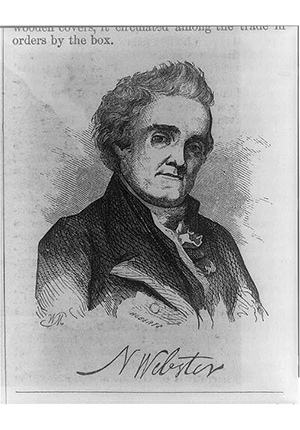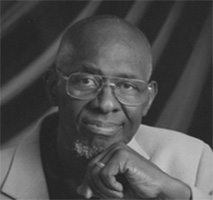Historic Document
An Examination into the Leading Principles of the Federal Constitution (1787)
Noah Webster | 1787

Library of Congress, Prints and Photographs Division
Summary
Noah Webster is best known as the leading lexicographer and linguistic reformer who published Americans’ first dictionary in 1828. However, he wrote frequently on politics and constitutionalism as well, often combining his interests, such as when he quipped in a 1788 essay that “a bill of rights, a perpetual constitution on parchment guaranteeing that right, was a useless form of words.” Despite his deep interest in reforming the way Americans used language, Webster did not believe that constitutions endured or failed based on what was written into them. Instead, as he argued forcefully in An Examination into the Leading Principles of the Federal Constitution, under the pseudonym, “An American Citizen,” constitutional freedom rested on the relatively equal distribution of property and, to a lesser extent, a general diffusion of knowledge. Webster was no leveler and could write with elitist disdain. His deeper point was simply that constitutions rested on broader foundations. Webster wrote at once confident and wary that Americans possessed the character and society necessary to sustain republicanism.
Selected by

William B. Allen
Emeritus Dean of James Madison College and Emeritus Professor of Political Science at Michigan State University

Jonathan Gienapp
Associate Professor of History at Stanford University
Document Excerpt
In America, we begin our empire with more popular privileges than the Romans ever enjoyed. We have not to struggle against a monarch or an aristocracy—power is lodged in the mass of the people.
On reviewing the English history, we observe a progress similar to that in Rome—an incessant struggle for liberty from the date of Magna Charta, in John’s reign, to the revolution. The struggle has been successful, by abridging the enormous power of the nobility. But we observe that the power of the people has increased in an exact proportion to their acquisitions of property. Wherever the right of primogeniture is established, property must accumulate and remain in families. Thus the landed property in England will never be sufficiently distributed, to give the powers of government wholly into the hands of the people. But to assist the struggle for liberty, commerce has interposed, and in conjunction with manufacturers, thrown a vast weight of property into the democratic scale. Wherever we cast our eyes, we see this truth, that property is the basis of power; and this, being established as a cardinal point, directs us to the means of preserving our freedom. Make laws, irrevocable laws in every state, destroying and barring entailments; leave real estates to revolve from hand to hand, as time and accident may direct; and no family influence can be acquired and established for a series of generations—no man can obtain dominion over a large territory—the laborious and saving, who are generally the best citizens, will possess each his share of property and power, and thus the balance of wealth and power will continue where it is, in the body of the people.
A general and tolerably equal distribution of landed property is the whole basis of national freedom: The system of the great Montesquieu will ever be erroneous, till the words property or lands in fee simple are substituted for virtue, throughout his Spirit of Laws.
Virtue, patriotism, or love of country, never was and never will be, till men’s’ natures are changed, a fixed, permanent principle and support of government. But in an agricultural country, a general possession of land in fee simple, may be rendered perpetual, and the inequalities introduced by commerce, are too fluctuating to endanger government. An equality of property, with a necessity of alienation, constantly operating to destroy combinations of powerful families, is the very soul of a republic—While this continues, the people will inevitably possess both power and freedom; when this is lost, power departs, liberty expires, and a commonwealth will inevitably assume some other form.
The liberty of the press, trial by jury, the Habeas Corpus writ, even Magna Charta itself, although justly deemed the palladia of freedom, are all inferior considerations, when compared with a general distribution of real property among every class of people. The power of entailing estates is more dangerous to liberty and republican government, than all the constitutions that can be written on paper, or even than a standing army. Let the people have property, and they will have power—a power that will for ever be exerted to prevent a restriction of the press, and abolition of trial by jury, or the abridgement of any other privilege. The liberties of America, therefore, and her forms of government, stand on the broadest basis. Removed from the fears of a foreign invasion and conquest, they are not exposed to the convulsions that shake other governments; and the principles of freedom are so general and energetic, as to exclude the possibility of a change in our republican constitutions.
But while property is considered as the basis of the freedom of the American yeomanry, there are other auxiliary supports; among which is the information of the people. In no country, is education so general—in no country, have the body of the people such a knowledge of the rights of men and the principles of government. This knowledge, joined with a keen sense of liberty and a watchful jealousy, will guard our constitutions, and awaken the people to an instantaneous resistance of encroachments.




